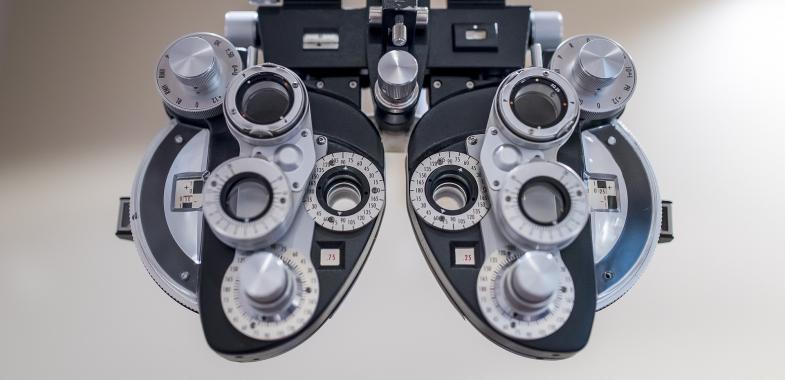
9 Ways to Keep Your Eyes Healthy in 2019
Eye health is vital to your overall health and wellness. Here are some suggestions for keeping your eyes healthy in 2019:
Include eye health in your regular check-up routine
By including eye care in your regular health check-up routine, you are ensuring that an important piece of your overall health puzzle is not neglected. Getting a comprehensive eye exam is a great way to do this. At L.O. Eye Care, this includes checking to see if you need glasses and also taking a detailed look at the health of your eyes. Many of the visual and ocular tests that are conducted help the doctor determine if you have any common vision problems or eye diseases. Since many of these eye conditions like glaucoma and diabetic eye disease often have no warning signs, a regular comprehensive eye exam becomes especially important.
Know your family’s eye health history
Considering that many eye-related diseases or conditions may be hereditary, knowing your family’s eye health history and sharing it with your doctor during your comprehensive eye exam is important. This information can help your doctor identify whether you may be at a higher risk for certain diseases or conditions, and allow for them to tailor your exam accordingly.
Wear protective eyewear
There are many different types of protective eyewear, including safety glasses or goggles, safety shields, eye guards, and sunglasses. Many can protect your eyes against occupational or recreational hazards, including possible injuries incurred while playing sports. Even during the winter, it is important to wear sunglasses to protect your eyes against potentially damaging ultraviolet rays from the sun. Snow reflects these UV rays, which can amplify their effects on your eyes. Explore with your L.O. Eye Care professional what protective eyewear measures may best suit your activities!
Give your eyes a rest
The typical work day for many Americans includes looking at a computer for long periods of time, which can lead to a multitude of problems stemming from eye strain. Like other parts of your body, your eyes can get tired from intensive use; causing headaches, blurred or double vision, and sore, tired, burning, watery, or itchy eyes. In order to combat eye strain, test out the “20-20-20 rule” in 2019. This strategy includes looking at something 20 feet away for 20 seconds, every 20 minutes.
Keep your hands clean
Washing your hands frequently is not only beneficial to your overall health, but also to the health of your eyes. Our hands collect many different types of germs in our everyday lives, including those that can spread viruses, bacteria, and infectious diseases. These germs can be easily transferred to your eyes from your hands, which makes washing your hands thoroughly and regularly an important routine. It is especially important to wash your hands prior to inserting or removing a contact lens, which often gets overlooked. In a pinch, hand sanitizer can also do the trick if washing your hands is not possible.
Prevent dry eyes
In a state like Michigan, the heating of homes and offices in the winter can affect your eye health. Winter heating creates warm and dry conditions that can cause moisture to evaporate from your eyes quicker than normal, leading to dry, itchy, or burning eyes. By using a humidifier in these conditions during the winter months, your environment is able to retain more humidity and help sustain proper moisture in your eyes. If your eyes are considerably dry, you may require a course of prescription medications and an evaluation with an optometrist.
Stay hydrated
Drinking enough water is important for your eye health, as well as your overall health and wellness. Getting an adequate amount of water each day can help maintain moisture that naturally protects your eyes. Maintaining eye moisture is especially important during cold weather in the winter months, when conditions are particularly dry.
Eating a well balanced diet
Just as a well balanced diet is necessary to keep your organs and tissues working properly, it is equally as important for the overall health of your eyes. Eating leafy green vegetables like kale, broccoli, and spinach can introduce eye specific antioxidants such as lutein and zeaxanthin. These antioxidants are not naturally produced by your eye, but are vital in helping prevent or delay the progression of common chronic eye diseases, like age-related macular degeneration. Additionally, incorporating fish oils and omega-3 fatty acids, found in salon and nuts, into your diet can help restore natural tear production and prevent symptoms of dry eye.